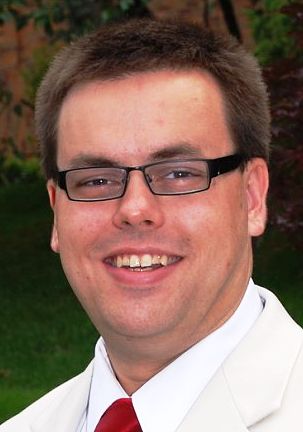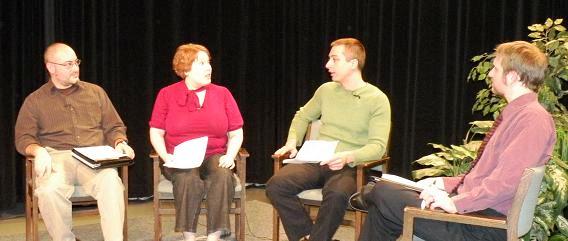-

-

 By
James Zimmerman
By
James Zimmerman
One of the most effective tools a religion has at
its disposal is shunning. Fear of being shunned is what keeps many
members loyal to a religion they no longer fully believe. And for
those few who are vocal about the hypocrisy they've discovered
in their former religion, shunning is a form of damage control, a
preemptive maneuver that prevents the faithful - the ‘sheep'
- from associating with those who may cause their faith to
waver.
In
religions, and other groups propped up by unverifiable claims, the
need for shunning is apparent. Should a member come across damning
information about the group, it is imperative to ex-communicate that
individual hastily, lest they divulge their findings to others. Of
course, merely erasing a former member from a religion's roster
does not shut them up, but it does squelch the curiosity of members
in good standing. Simply inform the faithful members of a cult,
sect, or religion, that their best friend, brother, sister, father or
mother has been disfellowshipped and - violá! -
suddenly, and without dissent, all in the congregation are now under
theological mandate to ignore, demonize and otherwise demean their
former companion.
.
Read more: Shunning is Alive and Well in 21st Century Minnesota
-

-

The
co-sponsored Secular Bible Study met for the first time February 24.
Forty-five people attended and appeared to be engaged in the
discussions. Chester O'Gorman is a co-leader and sponsored
through the out-reach program offered by Trinity Methodist Church.
Grant Steves is a co-leader and sponsored by the MNA. The Secular
Bible Study group has men and women of all ages and a diversity of
beliefs. Chester started the meeting with introductions of the
participants, and Grant announced the rules of dialog. The large
group was divided into five smaller groups to begin reacting to the
first chapter of the book of
Genesis. After discussing for
several minutes, we reconvened in the large group to share reactions.
Their reflections on the first chapter of
Genesis and
Enuma
Elish of Babylonian origins helped to set the stage for how the
study will be conducted: the reading of the text for understanding,
but not for spiritual edification necessarily.
The
next meeting of the group will be March 17 at 7 p.m. in northeast Minneapolis at Trinity United Methodist Church, 2511 Taylor Street NE, Minneapolis, MN 44418.
If
you are interested in this group, you may contact them through http://www.meetup.com/Secular-Bible-Study/
 By Bjorn
Watland
By Bjorn
Watland
Minnesota
Atheists is the state's largest and most active atheist
organization. How did we get to be that way? Through the
efforts of founding members, such as Shirley Moll, Steve Petersen and
August Berkshire, our organization is continually fulfilling its
mission to provide a welcoming community for atheists, educate the
public about atheism, and support the separation of state and
church. We are strong promoters of ‘Positive Atheism,'
which means different things to different people. To me, I see
Positive Atheism as advocating several things.
The
first is honesty and openness. Since we do not believe in any
gods, we must rely on ourselves to resolve issues great and small.
We cannot appeal to the heavens to feed the hungry, or to ease the
mind of someone we have wronged. We must do so ourselves.
With Minnesota Atheists, I have found members having a good sense of
integrity. With people like that, it is easy to disagree
respectfully and know where someone stands.
The
second is that atheism, as a unique worldview, should be respected.
While atheists differ on social issues, a person's lack of
belief in a god or gods should not affect how others consider his or
her opinions. Lately, there has been more effort to include
atheists in interfaith dialog panel discussions and atheists'
opinions are being heard regarding social and ethical issues.
Minnesota Atheists has been proud to participate in these efforts.
The
third is to stand our ground and let people know we are atheists.
This does not mean being indiscriminately anti-religious, but rather,
voicing our opinions on specific issues. Through respectful
dialog, we can challenge any organization which seeks to limit the
separation of state and church or seeks to harm others simply because
they are atheists. We focus on protecting our rights and
building a community, rather than seeking fights about the existence
of God, because we have found we can make a larger difference this
way. If an organization seeks a friendly theological debate, we
won't object; we think that our arguments based on truth and evidence
stand strong, but our energy is better spent in other ways.
We
should not be ashamed or be afraid to admit we are atheists. As
president of Minnesota Atheists, I will continue to work to make our
organization unnecessary in society. That may never happen, but
it is my goal. When atheists don't feel like a minority, when
their opinions are respected, and when religious intrusions into our
government and society are no longer problems, Minnesota Atheists
will have no purpose. Until that day, I will stand with you.
.
 By
Vic Tanner
By
Vic Tanner


 By
James Zimmerman
By
James Zimmerman
 By Bjorn
Watland
By Bjorn
Watland
